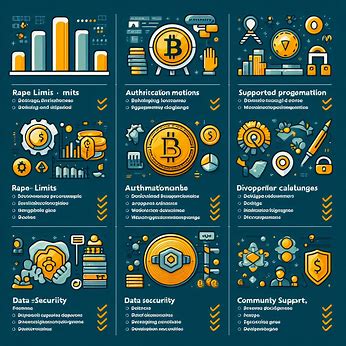Have you ever wondered about the difference between coins and tokens in cryptocurrency? While they may seem similar at first glance, there are some key differences that set them apart. Here is an answer to coins vs. tokens: What’s the difference?.
What are coins?
Coins, such as Bitcoin (BTC) and Ethereum (ETH), are native to their own blockchain. They serve as the primary means of exchange within their respective networks, facilitating transactions and incentivizing miners or validators to secure the blockchain.
Key characteristics of coins include:
1. Decentralized: Coins operate on decentralized networks, free from the control of any single entity.
2. Scarce: Most coins have a limited supply, which can contribute to their value appreciation over time.
3. Standalone: Coins can be used independently without relying on other platforms or tokens.
Examples of prominent coins include:
1. Bitcoin (BTC): The first and most well-known cryptocurrency, acting as a store of value and means of exchange.
2. Ethereum (ETH): the native currency of the Ethereum blockchain, used for transaction fees and as collateral for decentralized applications (dApps).
3. Litecoin (LTC): A faster and more scalable alternative to Bitcoin, designed for everyday transactions.
What are tokens?
Tokens, on the other hand, are built on top of existing blockchains. They are created using smart contracts and adhere to specific token standards, such as ERC-20 on the Ethereum network. Tokens can represent a wide range of assets, including utility tokens, security tokens, and governance tokens.
Key characteristics of tokens include:
1. Diversity: Tokens can serve various purposes, such as granting access to a product or service, representing ownership, or enabling participation in decentralized governance.
2. Dependence: Tokens rely on the underlying blockchain infrastructure for security and functionality.
3. Flexibility: Tokens can be easily created and customized to suit specific project requirements.
Examples of notable tokens include:
1. Uniswap (UNI): A governance token that allows holders to participate in decision-making processes within the Uniswap decentralized exchange.
2. Chainlink (LINK): A utility token that powers the Chainlink decentralized oracle network, enabling secure data feeds for smart contracts.
3. USD Coin (USDC): A stablecoin pegged to the value of the US dollar, providing stability in the volatile cryptocurrency market.
Related: What Is an Inflationary vs. Deflationary Cryptocurrency?
Key Differences Between Coins and Tokens
1. Purpose: Coins are primarily designed to serve as a means of exchange and store of value within their native blockchain ecosystems. Tokens, however, can fulfill a number of functions, such as representing assets, granting access to services, or enabling participation in decentralized governance.
2. Creation: Coins are usually created through a process called mining, where miners solve complex mathematical problems to validate transactions and earn newly minted coins as a reward. Tokens, on the other hand, are created using smart contracts and are distributed through various mechanisms like initial coin offerings (ICOs), airdrops, or rewards programs.
3. Blockchain Dependency: Coins have their own dedicated blockchains, which means they can operate independently without relying on other networks. Tokens are built on top of existing blockchains and are subject to the rules and limitations of the underlying network.
4. Fungibility: Most coins are fungible, meaning that each unit is interchangeable and holds the same value. Tokens can be either fungible or non-fungible, depending on their design. Non-fungible tokens (NFTs) represent unique assets and have distinct values.
Key Takeaways
1. Coins are native to their own blockchains and serve as the primary means of exchange within their networks, while tokens are built on top of existing blockchains and can represent a wide range of assets and functions.
2. Coins are created through mining and have their own dedicated blockchains, whereas tokens are created using smart contracts and rely on the underlying blockchain infrastructure.
3. Most coins are fungible, meaning each unit is interchangeable, while tokens can be either fungible or non-fungible, with the latter representing unique assets.
4. Understanding the differences between coins and tokens is important for anyone looking to venture into cryptocurrencies.
Frequently Asked Questions
1. Can I use tokens on any blockchain?
Tokens are generally made to function on a specific blockchain, such as Ethereum or Binance Smart Chain. They adhere to the token standards of the underlying blockchain, like ERC-20 for Ethereum. While cross-chain interoperability solutions are growing, tokens are still primarily used within their native blockchain ecosystems.
2. Are all coins mineable?
No, not all coins are mineable. Some coins, like Bitcoin and Ethereum, are created through the mining process, where miners solve complex mathematical problems to validate transactions and earn rewards. However, other coins, such as Ripple (XRP) and Stellar (XLM), are pre-mined and distributed through other means, like airdrops or initial coin offerings (ICOs).
3. Can I stake tokens?
Yes, some tokens can be staked, depending on the specific token and the underlying blockchain. Staking involves holding tokens in a wallet and using them to support the network’s security and operations. In return, stakers often receive rewards in the form of additional tokens or a share of transaction fees.
4. Are tokens securities?
The classification of tokens as securities varies depending on the jurisdiction and the characteristics of the token. Tokens may be considered securities if they pass the Howey Test, which evaluates whether an investment contract exists. Security tokens, which represent ownership in real-world assets like stocks or real estate, are more likely to be classified as securities.
5. How do I store coins and tokens?
Coins and tokens can be stored in digital wallets, which come in different forms, such as hardware wallets, software wallets, and paper wallets. Hardware wallets, like Ledger or Trezor, are considered the most secure option, as they store your private keys offline. Software wallets, like MetaMask or MyEtherWallet, are user-friendly and easily accessible, but they are more vulnerable to hacks. When storing coins and tokens, always prioritize the security of your private keys and follow best practices like enabling two-factor authentication and keeping your software up-to-date.








